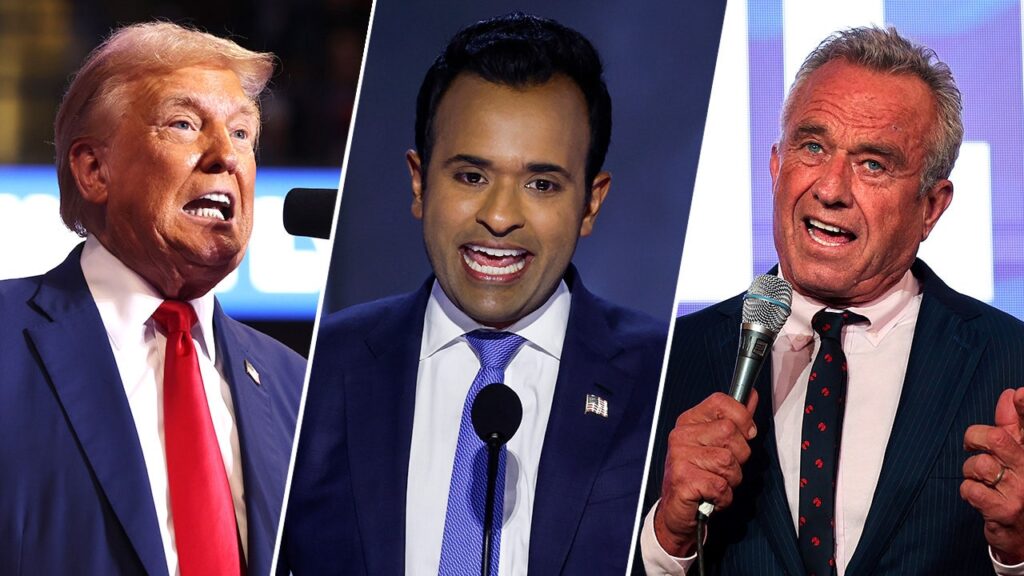WASHINGTON — Republicans pushed President Donald Trump’s signature tax and spending cut legislation through the House of Representatives after making several last-minute changes to the bill.
Following an all-night session, the House passed the bill Thursday morning by a vote of 215 to 214, with all Democrats and two Republicans voting no and one Republican voting “present.”
The legislation, known as the One Big Beautiful Bill Act, combines $1 trillion in cuts to federal health and food programs with nearly $4 trillion in tax cuts mostly benefiting higher earners.
The House passage of the legislation is a major win for Trump and Speaker Mike Johnson (R-La.), who had to placate conservatives wanting steeper spending cuts as well as moderates seeking a bigger tax deduction for wealthy homeowners.
The measure’s prospects appeared uncertain up until Johnson banged the gavel to close the vote, but the speaker always insisted it would pass. He repeated his pledge to get the measure to the president’s desk by the Fourth of July.
“Today proves we can do that and we will do that, and it doesn’t matter how much the media doubts us or how much the Democrats, you know, give us their narratives,” Johnson said.
But the bill’s fate remain uncertain, since a number of Senate Republicans have signaled they will not accept the House approach to either the tax cuts or the spending cuts, which would result in an estimated 8 million fewer Americans having health insurance, mostly because of cuts to Medicaid.
“I’m not for taking away health insurance from working folks who cannot afford private insurance otherwise,” Sen. Josh Hawley (R-Mo.) told reporters earlier Wednesday.
After a series of meetings with the bill’s various GOP skeptics, including a Wednesday field trip to the White House, Republican leaders agreed to several changes: an earlier start for “work requirements” limiting Medicaid benefits for unemployed adults without disabilities or dependents, a faster phaseout of green energy tax credits and a more generous federal tax deduction for homeowners’ state and local taxes.
All but a few holdouts got in line. Citing the bill’s large projected increases in federal budget deficits, Republicans Warren Davidson (Ohio) and Thomas Massie (Ky.) voted against the measure, and House Freedom Caucus Chair Andy Harris (Md.) voted “present.”
“While I love many things in the bill, promising someone else will cut spending in the future does not cut spending,” Davidson said on social media early Thursday morning. “Deficits do matter and this bill grows them now. The only Congress we can control is the one we’re in.”
Republican proponents of the legislation have claimed, contrary to budget experts, that the bill’s tax cuts will so improve economic growth that a resulting surge in tax receipts will make up for the difference in projected tax revenue and spending.
The bill extends tax cuts Trump enacted in his first term that are set to expire at the end of the year and adds tax breaks on tips and overtime that Trump championed during last year’s presidential campaign. Still, the Congressional Budget Office said this week that the legislation would diminish resources for lower-income households because of its cuts to Medicaid and the Supplemental Nutrition Assistance Program.
Democrats decried the bill both for its policies, which they noted were especially favorable to the well-off, and also the process, which included a Rules Committee markup that started after midnight on Wednesday and continued all day while Republicans hashed out their edits.
“This is one big, ugly bill that House republicans are trying to jam down the throats of the American people, under the cover of darkness,” House Democratic leader Hakeem Jeffries (N.Y.) said in a long speech shortly before the vote. “This legislation will not make life better for the American people.”
Progressive groups blasted the legislation, especially for its provisions cutting Medicaid and health insurance subsidies, which represented the most significant effort to roll back the Affordable Care Act since Republicans last pushed a repeal bill through the House eight years ago this month in 2017. That legislation died in the Senate with an iconic thumbs-down from then-Sen. John McCain (R-Ariz.).
Jeffries said the bill, if it becomes law, would reverse progress in reducing the number of Americans without health insurance.
“Children will get hurt. Women will get hurt. Older Americans who rely on Medicaid for nursing home care and for home care will get hurt,” Jeffries said. “People with disabilities who rely on Medicaid to survive will get hurt. Hospitals in your districts will close. Nursing homes will shut down. And people will die.”


